Publications
Articles, publications, books, tools and multimedia features from the U.S. Institute of Peace provide the latest news, analysis, research findings, practitioner guides and reports, all related to the conflict zones and issues that are at the center of the Institute’s work to prevent and reduce violent conflict.
Question And Answer
Whither NATO at 75?

Mirna Galic on the Role of Indo-Pacific Partners at the NATO Summit
While much of the conversation at this week’s NATO summit will be focused on Russia’s war in Ukraine, the presence of NATO partners Japan, South Korea, Australia and New Zealand “is a testament to … [NATO’s] interest in the Indo-Pacific and the focus on the challenges that China poses for the alliance,” says USIP’s Mirna Galic.
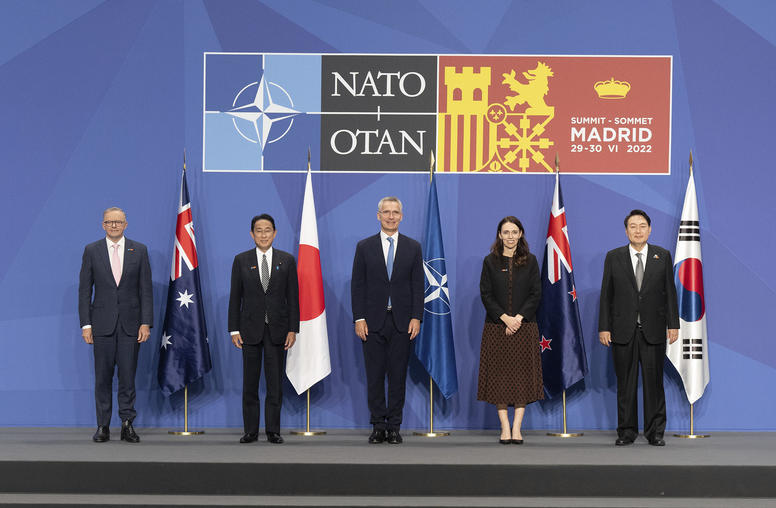
What’s Behind NATO’s Tightening Ties with its Indo-Pacific Partners?
NATO’s summit in Madrid, Spain, in June 2022 marked the first time the four leaders of NATO’s Indo-Pacific partner countries — Australia, Japan, New Zealand and the Republic of Korea (ROK) — joined NATO counterparts for a meeting at the heads of state and government level. July 2023, at the NATO summit in Vilnius, Lithuania, will mark the second. The high level of media attention paid to the attendance in Madrid of the Indo-Pacific partners, known informally as the Indo-Pacific Four or IP4, is likely to be repeated in Vilnius. Beyond this, what should Indo-Pacific watchers expect from the Vilnius Summit in terms of NATO-IP4 developments?

Mary Glantz on the NATO Summit and the Wagner Mutiny
Ukraine’s potential admission into the Euro-Atlantic security alliance will top the agenda at next week’s summit in Lithuania. While it’s unlikely that there will be any clear-cut decision next week, “the opinion in the alliance is leading toward Ukraine moving faster rather than slower” in terms of joining, says USIP’s Mary Glantz. “I think history is on Ukraine’s side right now.”
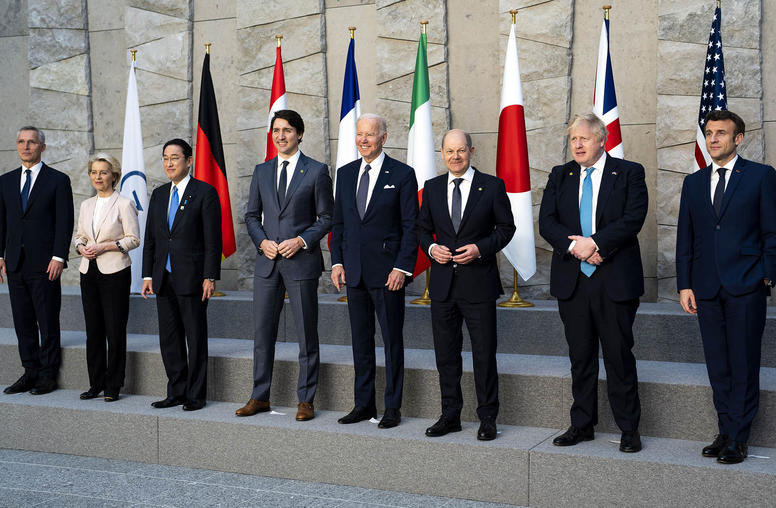
The ‘Russia Factor’ in NATO-Japan Relations
Russia’s illegal and unprovoked aggression against Ukraine has changed Japan’s assessment of Russia, as well as Tokyo’s policy toward Moscow. In doing so, it has also brought NATO and Japan closer together in their views of Russia and led to broader NATO-Japan engagement. Whereas Russia was once a complicating factor in the NATO-Japan relationship, it is now a factor promoting relations.
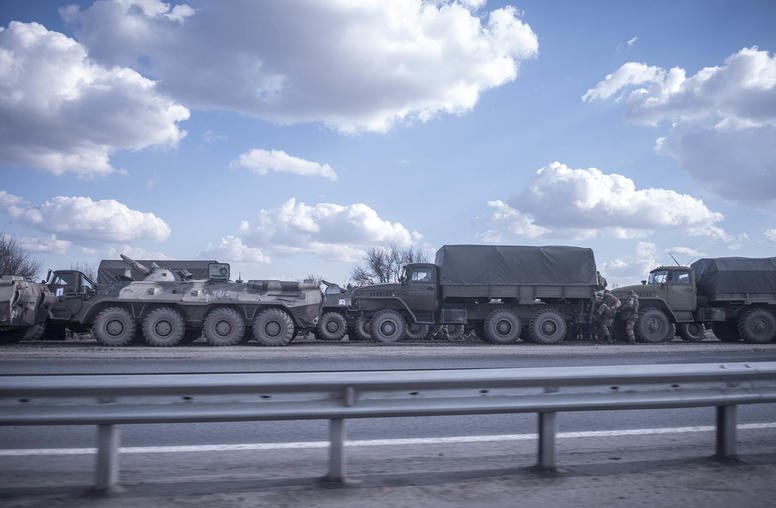
What Does the Wagner Mutiny Mean for Putin and His War on Ukraine?
Before Vladimir Putin launched his illegal war on Ukraine, the Russian-funded paramilitary Wagner Group was an infamous, shadowy tool of Moscow’s foreign policy, advancing its objectives in the Middle East and Africa. After Putin’s February 2022 invasion, the private miliary company — led by Putin’s former chef, Yevgeny Prigozhin — became a critical cog of the Russian military’s war effort. But as cracks emerged across Russian society and within the elite over the war, Prigozhin has been one of the most outspoken critics, alienating his adversaries in Russia’s defense ministry. Eventually, Putin sided with Priogzhin’s opponents ordering Wagner to be officially subsumed within Ministry of Defense.

For a Future Peaceful Russia, Engage its Exiles Now
To pursue his war on Ukraine, Vladimir Putin has crushed the last of Russia’s once-vibrant civil society. He has imprisoned some 20,000 dissidents, throttled all independent media — and triggered an exodus of perhaps 1 million Russians, many of them young, educated and technically skilled. As the West helps Ukrainians’ immediate struggle to survive, any long game to defeat Putin’s assaults on Ukraine, international law and peace requires that we cultivate, not isolate, this new Russian diaspora. Whenever Russians become able to shape their country’s future after Putin, the new exiles will be potential allies of democracy and rule of law.

15 Months on, Ukrainians Remain United on Freedom, Rule of Law
Two days into Ukraine’s unfolding counteroffensive, a soldier just back from one of the first probes into Russian defensive lines called me on WhatsApp, giddy with excitement, to report his unit’s unexpected success. “We were told to push them back 600 meters,” he said, “but we got so little resistance, we pushed them back six kilometers! The Russians were soft!”
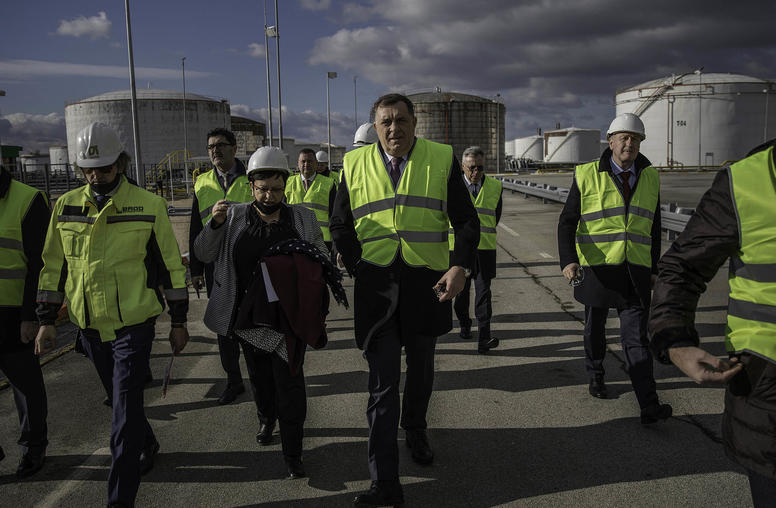
Dislodging Putin’s Foothold in the Balkans
The impact of Russia’s invasion of Ukraine on the Balkans can only be understood by considering Moscow’s malign influence in the region from a broader perspective. While Russia has specific objectives related to each individual country in the region, its overall objective is clearly to target the Western Balkans through a divide and rule approach, using multiple tools of influence. While the United States and its European partners focus on the war in Ukraine, Russia is taking the opportunity to nibble away at NATO’s borders and to sow discord in countries hoping to some day present a strong case for joining the European Union.
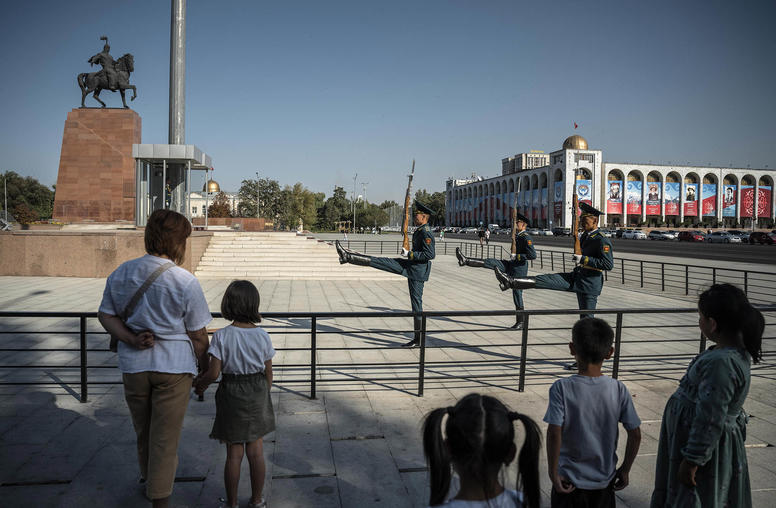
China Looks to Fill a Void in Central Asia
As the Group of Seven met at the end of last week in Hiroshima, Japan, China organized a summit with Kazakhstan, Kyrgyzstan, Tajikistan, Turkmenistan and Uzbekistan, marking a new chapter in Beijing’s engagement with the region. Central Asian states are looking for a new partner to help ensure their own security against domestic rebellions, as Russia’s war in Ukraine has limited Moscow’s ability to fulfill a longstanding role as a guarantor of domestic stability in the region. While most of the summit’s public discussion focused on economic and trade issues, China noted that it would help Central Asia enhance it’s law enforcement and security capabilities, which aligns with Beijing’s intensifying campaign for “global security.”
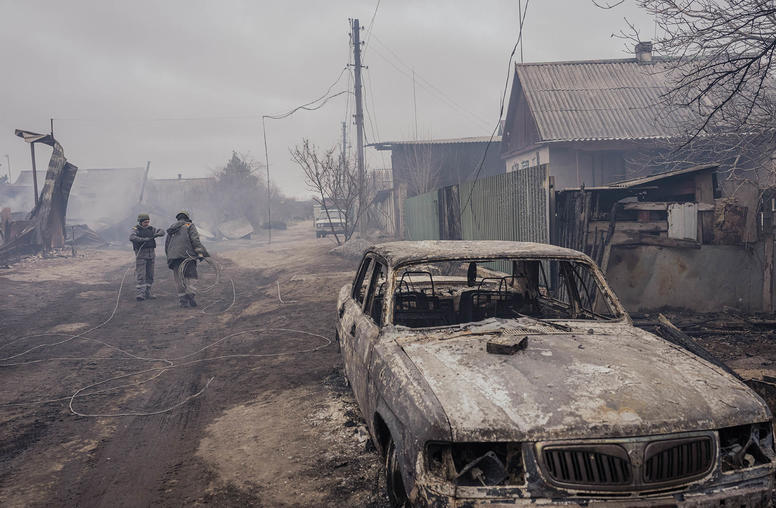
It’s Not About Picking Sides: The Nonaligned Movement and Russian Aggression
For nearly 80 years, the world has benefited from the post-World War II international legal prohibitions and norms outlawing aggressive war. While this relative peace and stability was threatened during the Cold War, a group of countries — called the nonaligned movement (NAM) — came together to declare their aversion to the bloc politics of the United States and the Soviet Union. This nonaligned movement championed key principles of the U.N. charter, including respect for territorial integrity, sovereignty and nonaggression.